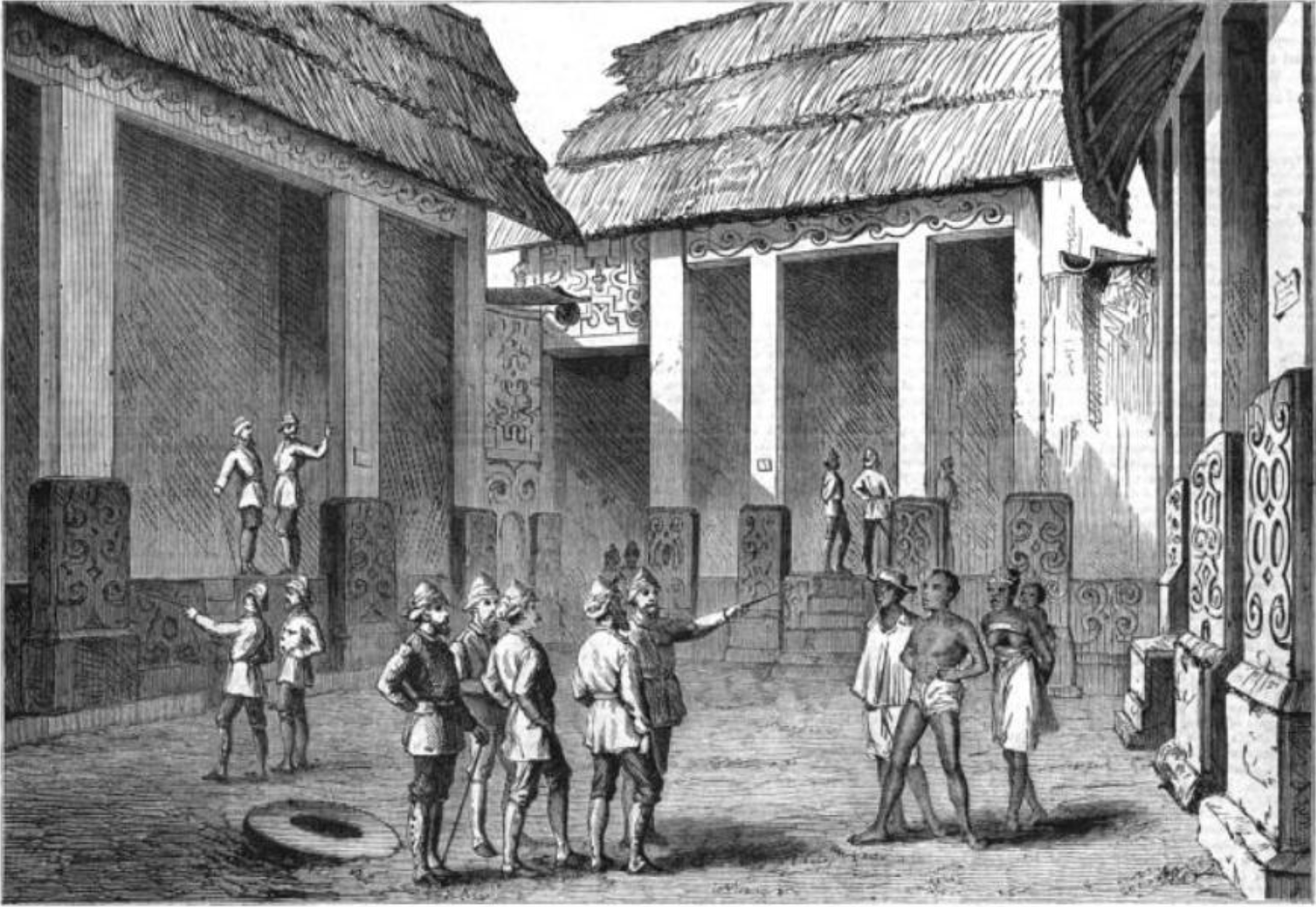|
Ashanti–Akim–Akwapim War
The Ashanti–Akim–Akwapim War, also known as the Ashanti Invasion of the Gold Coast, was the expansion of West African Empire of Ashanti against the alliance of Akyem and Akuapem tribes from 1814 until 1816 for access to the coast. This battle was not a direct war on Akyem states, which were never subdued by any power, but a war to get access to the coasts in which the Akyem along with Akuapem forces allied for. In 1814 the Ashanti, under the leadership of Asantehene Osei Bonsu, defeated the outnumbered Akim-Akwapim alliance. After the war and with access to the coast the Ashanti followed up their victory by pillaging the coastal Ga people. See also *Empire of Ashanti * Ashanti-Fante War * Ga-Fante War *Anglo-Asante Wars *History of Ghana The Republic of Ghana is named after the medieval West African Ghana Empire. The empire became known in Europe and Arabia as the Ghana Empire after the title of its Emperor, the Ghana. The Empire appears to have broken up followi ... [...More Info...] [...Related Items...] OR: [Wikipedia] [Google] [Baidu] |
West Africa
West Africa or Western Africa is the westernmost region of Africa. The United Nations defines Western Africa as the 16 countries of Benin, Burkina Faso, Cape Verde, The Gambia, Ghana, Guinea, Guinea-Bissau, Ivory Coast, Liberia, Mali, Mauritania, Niger, Nigeria, Senegal, Sierra Leone, and Togo, as well as Saint Helena, Ascension and Tristan da Cunha ( United Kingdom Overseas Territory).Paul R. Masson, Catherine Anne Pattillo, "Monetary union in West Africa (ECOWAS): is it desirable and how could it be achieved?" (Introduction). International Monetary Fund, 2001. The population of West Africa is estimated at about million people as of , and at 381,981,000 as of 2017, of which 189,672,000 are female and 192,309,000 male. The region is demographically and economically one of the fastest growing on the African continent. Early history in West Africa included a number of prominent regional powers that dominated different parts of both the coastal and internal trade networks, suc ... [...More Info...] [...Related Items...] OR: [Wikipedia] [Google] [Baidu] |
Anglo-Asante Wars
The Anglo-Ashanti wars were a series of five conflicts that took place between 1824 and 1900 between the Ashanti Empire—in the Akan interior of the Gold Coast—and the British Empire and its African allies. Though the Ashanti emerged victorious in some of these conflicts, the British ultimately prevailed in the fourth and fifth conflicts, resulting in the complete annexation of the Ashanti Empire by 1900. The wars were mainly due to Ashanti attempts to establish a stronghold over the coastal areas of present-day Ghana. Coastal peoples such as the Fante and the Ga came to rely on British protection against Ashanti incursions. Earlier wars The British fought three earlier wars in the Gold Coast: In the Ashanti-Fante War of 1806–07, the British refused to hand over two rebels pursued by the Ashanti, but eventually handed one over (the other escaped). In the Ga-Fante War of 1811, the Ashanti sought to aid their Ga allies in a war against the Fante and their British allie ... [...More Info...] [...Related Items...] OR: [Wikipedia] [Google] [Baidu] |
1814 In Africa
Events January * January 1 – War of the Sixth Coalition – The Royal Prussian Army led by Gebhard Leberecht von Blücher crosses the Rhine. * January 3 ** War of the Sixth Coalition – Siege of Cattaro: French garrison surrenders to the British after ten days of bombardment. ** War of the Sixth Coalition – Siege of Metz: Allied armies lay siege to the French city and fortress of Metz. * January 5 – Mexican War of Independence – Battle of Puruarán: Spanish Royalists defeat Mexican Rebels. * January 11 – War of the Sixth Coalition – Battle of Hoogstraten: Prussian forces under Friedrich Wilhelm Freiherr von Bülow defeat the French. * January 14 ** Treaty of Kiel: Frederick VI of Denmark cedes the Kingdom of Norway into personal union with Sweden, in exchange for west Pomerania. This marks the end of the real union of Denmark-Norway. ** War of the Sixth Coalition – Siege of Antwerp: Allied forces besiege French Antwe ... [...More Info...] [...Related Items...] OR: [Wikipedia] [Google] [Baidu] |


